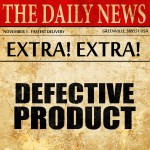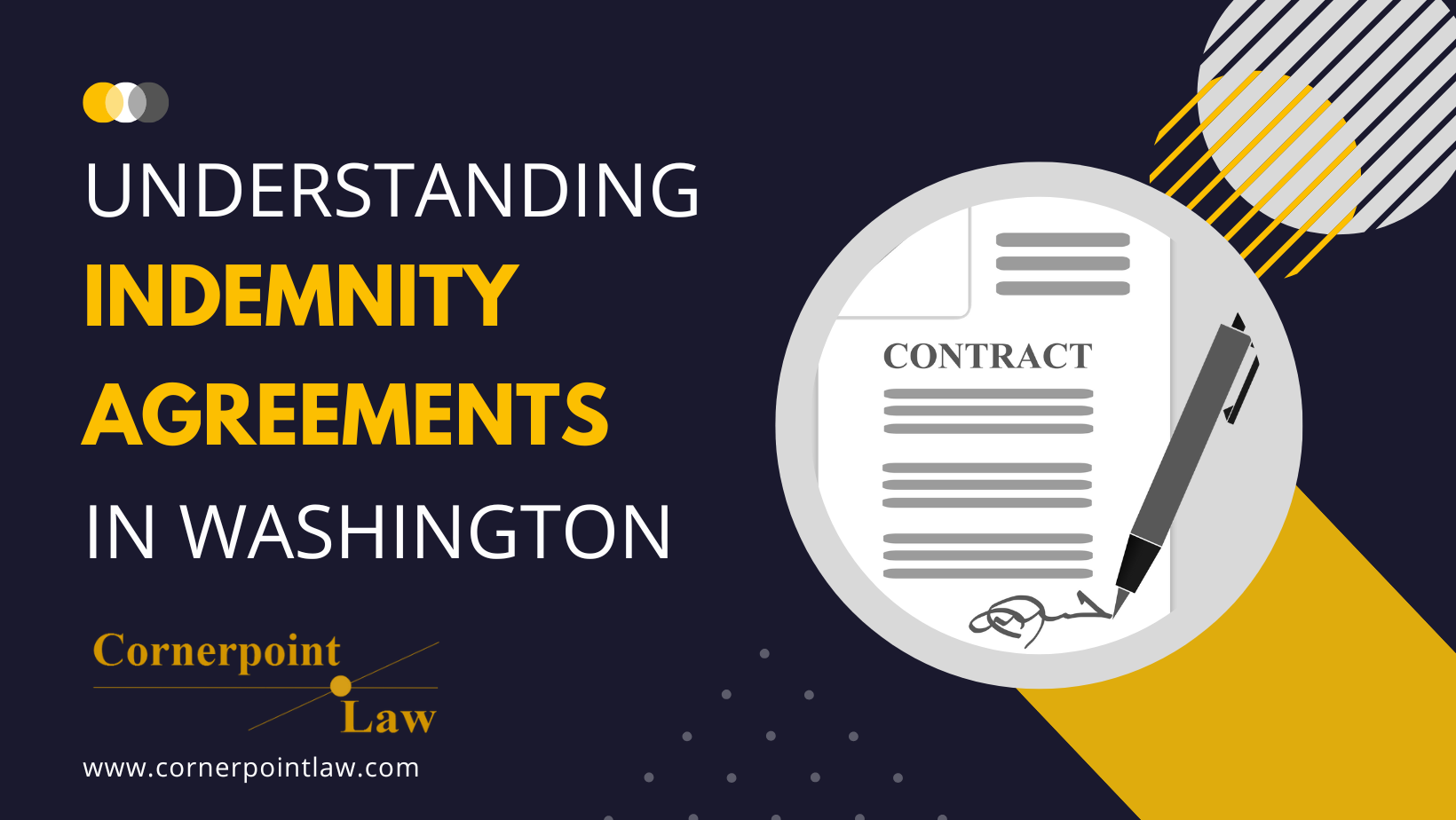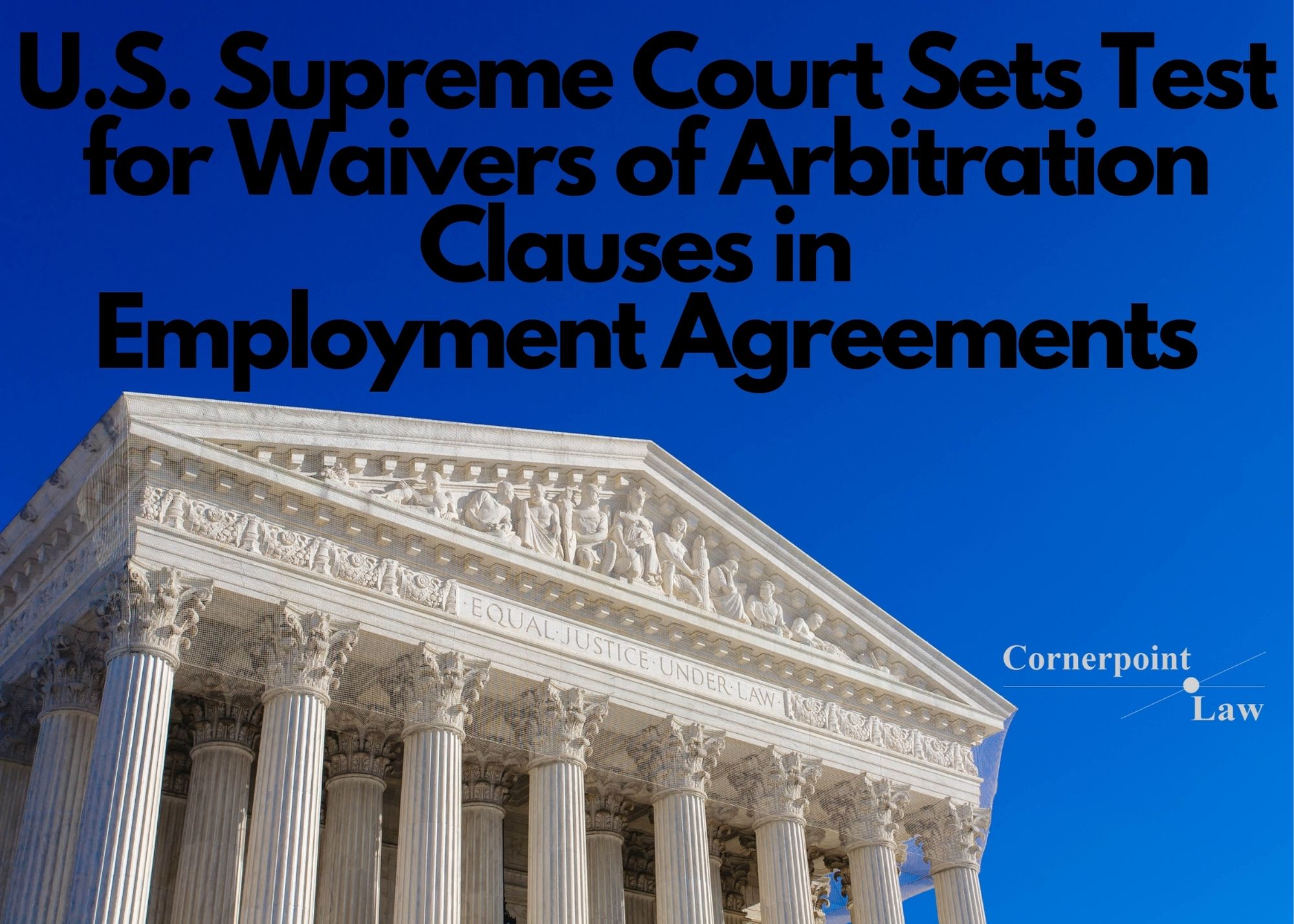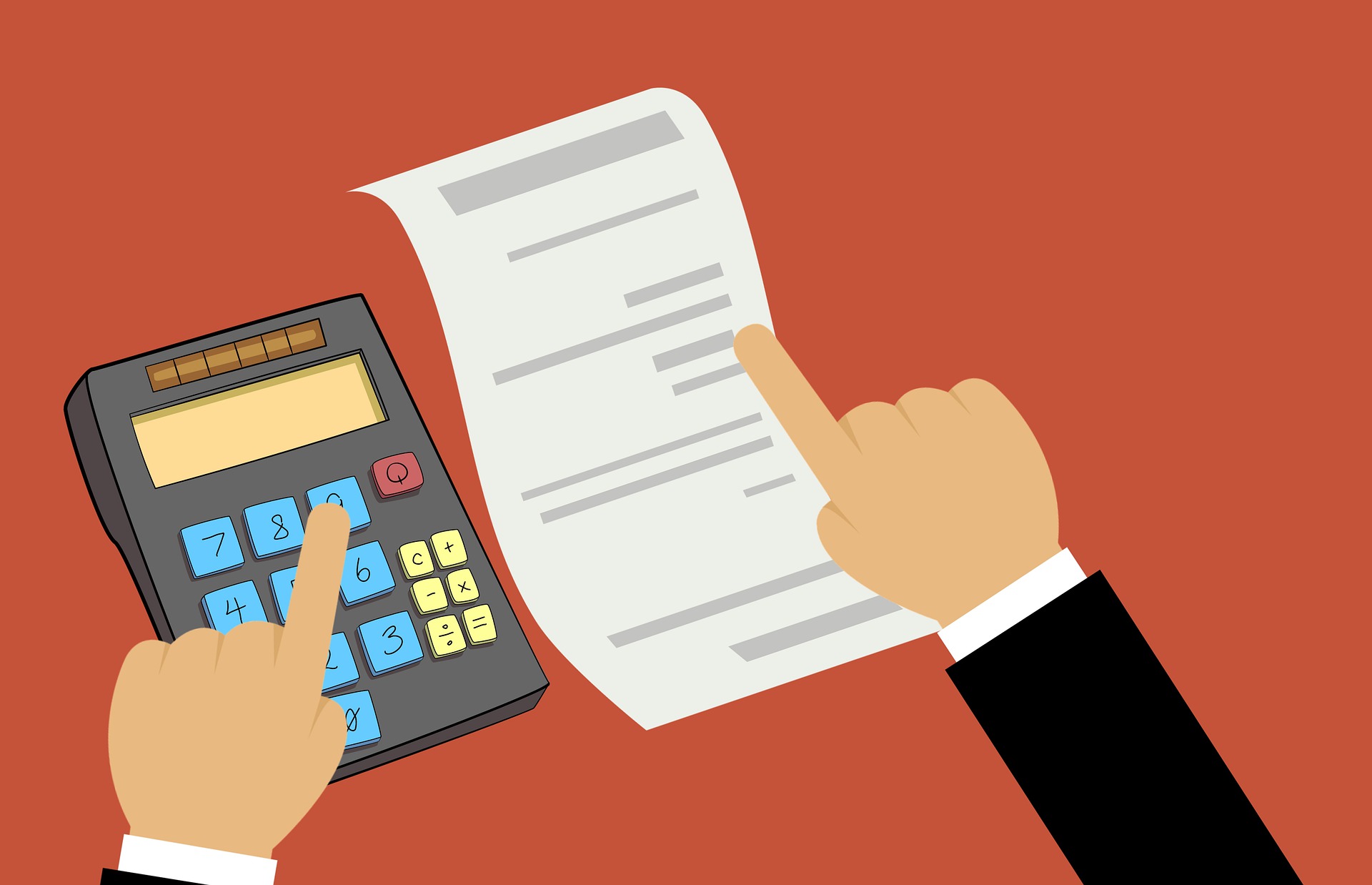Seller Beware: Rapids in the Product Pipeline
April 28, 2017
Unauthorized use and/or duplication of blogposts without express and written permission is strictly prohibited. Excerpts and links may be used, provided that full and clear credit is given, and with appropriate and specific direction to the original content.
The author of this post can be reached by phone at 206-693-2718 or by email.
Navigating the Washington Product Liability Act
Part Three: Rapids in the Product Pipeline
by Stacia Hofmann
As discussed in last month’s blogpost, when it comes to legal responsibility for product defects, the buck stops with the manufacturer. Manufacturers may be held “strictly liable”; that is, financially responsible for personal injury or property damage caused by unsafe products even in the absence of ordinary negligence. But what about other product sellers in the product delivery pipeline, like retailers and distributors?
This post will discuss the second half of Washington’s two-tiered product liability scheme – the liability of non-manufacturing product sellers. Below, we examine these product sellers’ default liability, the exceptions that can elevate them to the status of manufacturers, and why the distinction between product seller and service provider matters.
A Non-Manufacturing Product Seller Is Always Liable for Its Own Independent Acts
 Under the Washington Product Liability Act (WPLA), when a retailer, distributor, wholesaler, or other non-manufacturing product seller acts as a conduit for a product, it is generally not liable for product defects caused by the manufacturer. So when a product is unsafe because of the product’s design, the product’s construction, inadequate warnings, implied warranties, and/or the manufacturer’s warranty, the pass-through seller typically isn’t responsible–it most likely lacks the resources to investigate and test the products in any meaningful way.
Under the Washington Product Liability Act (WPLA), when a retailer, distributor, wholesaler, or other non-manufacturing product seller acts as a conduit for a product, it is generally not liable for product defects caused by the manufacturer. So when a product is unsafe because of the product’s design, the product’s construction, inadequate warnings, implied warranties, and/or the manufacturer’s warranty, the pass-through seller typically isn’t responsible–it most likely lacks the resources to investigate and test the products in any meaningful way.
However, a non-manufacturing product seller is always liable for injuries and damages from the product caused by its own acts. RCW 7.72.040. This means that if it is (1) negligent, (2) makes and breaches an express warranty about the product, or (3) intentionally misrepresents the product, then the product seller may be liable for injuries caused by the product — either alongside the manufacturer or on its own.
As you may recall, we are using the case of Modisette v. Apple to provide an illustrative and modern application of the WPLA.1 The California lawsuit arises out of a tragic car accident allegedly caused by a driver using FaceTime. The plaintiffs claim that Apple could have installed non-bypassable lockout software on the iPhone 6 to prevent drivers from using FaceTime at highway speeds.
The Modisettes have not named any retailer or other non-manufacturing seller of the iPhone in their suit. Assuming that the driver bought the phone from his cell phone carrier, and the carrier acted as a mere conduit for the sale of the product, then Washington law would not favor a product liability claim against the carrier. But if, for example, the carrier misrepresented that FaceTime was safe to use at highway speeds, then it could find itself a defendant alongside Apple.
In Some Instances, a Non-Manufacturing Product Seller Steps Into the Liability Shoes of the Manufacturer
 As a general statement, tort law seeks to place liability on the party responsible for the wrong. However, sometimes public policy dictates otherwise. Thus, the WPLA provides that, in certain circumstances, a non-manufacturing product seller may be liable as though it were the manufacturer of the product, a status that I call a “pseudo-manufacturer.” Because manufacturers are strictly liable for unsafe products — whether caused by the product’s design, construction, inadequate warnings, or failed warranty — pseudo-manufacturer status can drastically alter the liability of a non-manufacturing product seller.
As a general statement, tort law seeks to place liability on the party responsible for the wrong. However, sometimes public policy dictates otherwise. Thus, the WPLA provides that, in certain circumstances, a non-manufacturing product seller may be liable as though it were the manufacturer of the product, a status that I call a “pseudo-manufacturer.” Because manufacturers are strictly liable for unsafe products — whether caused by the product’s design, construction, inadequate warnings, or failed warranty — pseudo-manufacturer status can drastically alter the liability of a non-manufacturing product seller.
Procedural Exceptions
The WPLA has carved out two procedural exceptions that elevate a non-manufacturing product seller to the status of pseudo-manufacturer:
(1) The State of Washington does not have jurisdiction over the manufacturer; or
(2) It is highly probable that a judgment against the manufacturer would be unenforceable.
The purpose of the procedural exceptions is to provide an injured party with compensation in instances where efforts to sue the manufacturer are futile — perhaps the manufacturer is unidentifiable, is no longer in business, or has not had sufficient contact or connection with the State of Washington and is thus not subject to our laws. In these situations, the non-manufacturing product seller becomes a pseudo-manufacturer and is liable as though it were the actual manufacturer of the product.
Business Strategy Exceptions
Sometimes a manufacturer and other product seller do not have a simple buy/sell relationship. Rather, because of manufacturing capacity, branding, or other business strategy, the manufacturer and non-manufacturing product seller are interrelated in some substantive way. The WPLA spells out three situations where business strategy decisions can elevate non-manufacturing product sellers to the status of pseudo-manufacturer:
(1) The non-manufacturing product seller owns and controls, or is owned and controlled by, the manufacturer;
(2) The non-manufacturing product seller provides plans or specifications for the product (if the product is unsafe due to these plans or specifications); or
(3) The non-manufacturing product seller brands the product under its own name.
Unlike the procedural exceptions, the business strategy exceptions do not require that the actual manufacturer of the product be out of reach or unavailable.
A lesson in the power of pseudo-manufacturer status comes from one of Western Washington’s resident companies, REI. REI sold a bicycle under the REI brand that it did not manufacture. The bike’s owner sustained serious injuries when the front of her bike collapsed — allegedly because of a defect in the manufacture of the carbon fiber fork.2 The appellate court determined that REI was a pseudo-manufacturer and thus strictly liable for the injuries, and did not allow REI to attribute fault to the actual bike manufacturer.
Blurred Lines Between Product Seller and Service Provider
On a related note, with a few exceptions, the WPLA defines “product seller” as anyone who is engaged in the business of selling or leasing products. But where a business sells or leases products within the scope of providing professional services, then the business is a service provider rather than a product seller, and is thus not subject to the WPLA. RCW 7.72.010(1).
Since service providers are, by default legal rules, liable for negligence and misrepresentation, just like non-manufacturing product sellers, why does the service provider/product seller distinction really matter? The answer, of course, is because of the strict liability standard of manufacturers and pseudo-manufacturers that would not be imposed on a product-selling business categorized as a service provider.
To determine whether a business is a product seller or a service provider, courts analyze whether the business’s primary purpose in selling the product is to provide a service or a product. If the product is merely incidental to service, then the business is a service provider. If, however, there is an independent sale of a product, then the business is a product seller and subject to the WPLA. Washington courts have reached the following conclusions:
- When a doctor at a hospital surgically implants an allegedly defective medical device manufactured elsewhere, and the hospital includes the cost of the device in its billings, then the hospital is a service provider and not a product seller because the purpose of the transaction is to provide the service of surgery, and the device is merely incidental to the surgery.3
- When a construction company uses allegedly defective pre-fabricated building products manufactured by another company, and includes the cost of materials in its contract, then the construction company is a service provider and not a product seller because the purpose of the transaction is to provide construction services.4

- When a school purchases meat allegedly tainted with E. coli, uses that meat in a taco, and sells the taco to students in the cafeteria, then the school *is* a product seller and not a service provider because the purpose of the transaction is to sell a taco, not to provide educational services. And because the school made the taco, it is properly classified as a manufacturer rather than a non-manufacturing product seller.5
Conclusion
Knowing the WPLA’s reach and application allows product sellers to manage risk and prepare for and guard against potential liability. Businesses that both provide services and sell products should analyze whether the products are incidental to providing services or are instead independent sales transactions; if the latter, the business may fall under the purview of the WPLA and be at risk for strict product liability. Similarly, non-manufacturing product sellers should take stock not only of their own actions and representations, but should also carefully consider whether they are exposed to any risks that can change them to pseudo-manufacturer status.
In our upcoming blogpost in the Seller Beware series, we will discuss the status of the Modisette case, recap the product seller categories of the WPLA, and provide tips on managing product liability risk.
This blog is for informational purposes only and is not guaranteed to be correct, complete, or current. The statements on this blog are not intended to be legal advice, should not be relied upon as legal advice, and do not create an attorney-client relationship. If you have a legal question, have filed or are considering filing a lawsuit, have been sued, or have been charged with a crime, you should consult an attorney. Furthermore, statements within original blogpost articles constitute Stacia Hofmann’s opinion, and should not be construed as the opinion of any other person. Judges and other attorneys may disagree with her opinion, and laws change frequently. Neither Stacia Hofmann nor Cornerpoint Law is responsible for the content of any comments posted by visitors. Responsibility for the content of comments belongs to the commenter alone.
- The Modisette case is not governed by Washington law. ↩
- Johnson v. Recreational Equipment, Inc., 159 Wn. App. 939, 247 P.3d 18 (2011). ↩
- McKenna v. Harrison Memorial Hosp., 92 Wn. App. 119, 960 P.2d 486 (1998). ↩
- Anderson Hay & Grain Co., Inc. v. United Dominion Indus., Inc., 119 Wn. App. 249, 76 P.3d 1205 (2003). ↩
- Almquist v. Finley Sch. Dist. No. 53, 114 Wn. App. 395, 57 P.3d 1191 (2002). ↩




